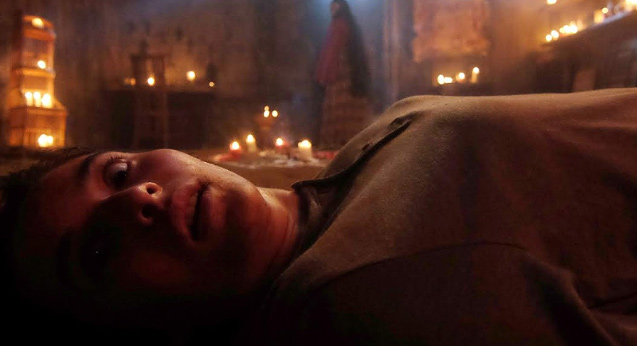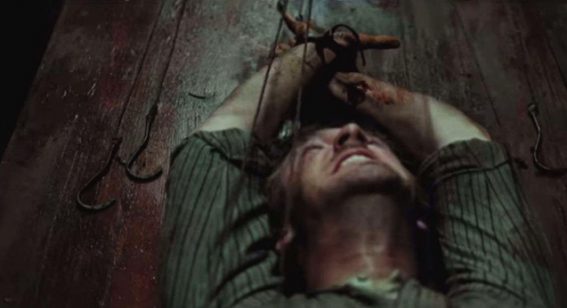Netflix horror May the Devil Take You has enjoyable, familiar, scares
Plenty of blood-soaked, broken-limbed moments, impactful scares and gross-outs.

Horror set in a countryside villa, once the site of black magic rituals, where visiting family members of the recently deceased owner unwittingly release a violent evil.
Has a familiar set-up, but still plenty of blood-soaked, broken-limbed moments, impactful scares and gross-outs. says Steve Newall.
A mere month after his splatter action pic The Night Comes For Us came to Netflix, the streaming giant serves up another bloody slice of Timo Tjahjanto with this pure horror movie that riffs on Raimi and delves into demonic deities. Where Night is sprawling in its scope, perhaps a little too much for its own good, May the Devil Take You is a confined horror that largely takes place in a dilapidated country home, one that becomes a playground in which evil torments a fractured family and Tjahjanto indulges in plenty of effective scares and bouts of gore.
After opening with a sacrificial ritual commissioned by a father to raise some cash (note – bad idea), the film soon finds him in hospital covered in some deliciously disgusting lesions and at death’s door. Estranged daughter Alfie joins her step-mother and her kids at her father’s bedside, and after a few gross turns of events, they are inspecting the rundown villa which, unbeknownst to them, was the site of the earlier black magic. The greedy second wife and stepdaughter don’t find the piles of riches they were hoping for, but there is a basement sealed behind a padlocked door for people’s protection—where the ritual took place and which is, of course, opened in no time flat to unleash an evil entity.
It’s a familiar set-up, and so are many of the gags Tjahjanto employs but, nevertheless, they’re effective enough to make this enjoyable, if not groundbreaking viewing, in an Evil Dead vein. Creaking a bit under its runtime, May the Devil Take You doesn’t really need to be over 110 minutes long but it never gratingly outstays its welcome and doesn’t over-reach.
By the time it’s reached a satisfying conclusion, Tjahjanto has delivered a body count that’s a mere fraction of The Night Comes For Us yet still manages plenty of blood-soaked, broken-limbed moments, combined with a strong aptitude for building tension and preying on the viewer’s anticipation in the lead up to enjoyably impactful scares and gross-outs alike.























